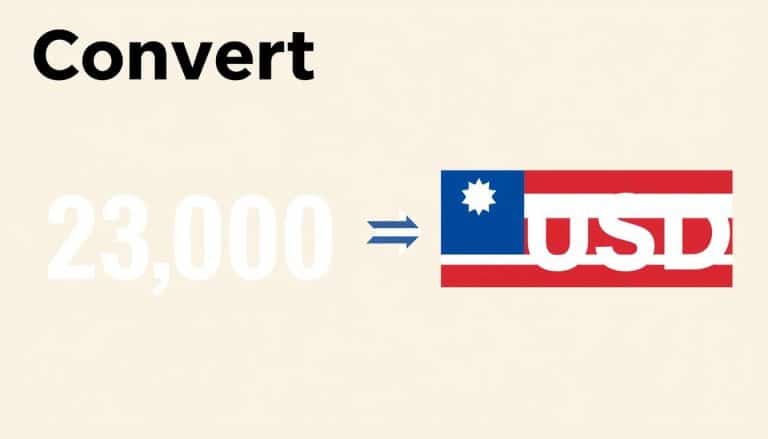Ripple Partnerships Update
Ripple is a leading global technology provider of innovative blockchain-based solutions for the financial services industry. It offers a wide range of products and services, including payment networks, digital asset management tools, and cross-border payments. Through its partnerships with financial institutions around the world, Ripple has made significant strides in advancing the use of blockchain technology within the banking sector. This article will provide an overview of Ripple’s recent updates on partnerships and their impact on the financial sector as well as global economy.
Overview of Ripple’s Technology
Ripple’s technology is revolutionizing the way money moves around the world, offering unprecedented speed and reliability with its innovative solutions. At its core, Ripple utilizes a decentralized payments system that enables users to send and receive money without relying on traditional financial institutions like banks or credit card companies. It also makes use of smart contracts to provide secure transactions between parties. With Ripple, users can trust that their funds are safe and can be transferred quickly without having to worry about fees or slow processing times. This provides a convenient alternative to traditional banking systems that require more time and resources to process payments. Additionally, Ripple’s blockchain-based solutions offer enhanced security compared to traditional payment methods, helping protect user data from malicious third parties. As such, it offers a number of benefits for those looking for reliable payment options. By leveraging this technology, Ripple has been able to forge strong partnerships with numerous companies in various industries around the world.
Benefits of Ripple’s Blockchain-Based Solutions
Blockchain-based solutions provided by Ripple have the potential to offer a variety of advantages, such as increased efficiency, cost savings, and improved security. These benefits include:
- High speed payments that allow for instantaneous transfers between institutions across multiple borders.
- Smart contracts that enable transactions to be automated while still ensuring accuracy and security.
- Lower transaction costs due to the elimination of middlemen in financial transactions.
- Improved fraud prevention since blockchain technology is inherently secure and immutable.
These features make Ripple’s blockchain-based solutions an attractive option for businesses looking to take advantage of the speed and security offered by distributed ledger technology. By leveraging these technologies, Ripple is positioned to become a major player in the banking industry and beyond through its partnerships with some of the world’s largest financial institutions.
Ripple’s Partnerships
The adoption of distributed ledger technology by leading financial institutions has led to the development of Ripple’s extensive network of partnerships. One may ask, what advantages do these partnerships bring? Ripple’s partnerships provide an array of opportunities to different stakeholders in the industry. It enables companies to access innovative solutions that can help them with cost-savings, improved security, and faster transaction times. Additionally, its partner network allows Ripple to manage regulatory hurdles and adoption challenges more effectively. The combined capabilities of these partners give Ripple a competitive edge over other blockchain-based solutions, helping it become a leader in the space. In order to further increase its presence in the industry, Ripple continues to develop new partnerships that leverage their existing strengths. As such, they have been able to successfully navigate various regulatory hurdles and remain ahead of their competitors in terms of market share and adoption rate. This has enabled them to stay at the forefront of innovation within this rapidly evolving space and gain access to new resources that expand their reach even further. By taking advantage of these strategic alliances, Ripple is well-positioned for success as it looks towards the future. With these key benefits in mind, it is clear why many organizations are turning towards Ripple’s blockchain-based solutions when looking for reliable payment services providers.
Ripple’s Recent Updates
Recent updates to Ripple’s distributed ledger technology have helped the company stay at the forefront of innovation in the payment services industry. These updates include:
- Implementation of cryptocurrency regulations to ensure compliance with international standards.
- The introduction of faster and more secure interbank transactions.
- Improvements in scalability solutions, making it easier for Ripple users to handle large volumes of transactions.
- Development of a new consensus protocol that allows for better accuracy and reliability.
- Expansion of its global network, connecting Ripple users from all over the world.
With these updates, Ripple is able to offer customers a wide range of financial services that are both secure and efficient. This puts them in a position to significantly impact the way financial services are conducted around the world, paving the way for further growth and development in this sector. By doing so, Ripple is setting an example for other companies looking to make their mark on the future of payments. With these advancements, it is clear that Ripple will continue to be an important player in transforming how money moves across borders and nations, providing customers with greater access to funds than ever before. Consequently, its impact on the financial sector will only grow as time goes on.
Ripple’s Impact on the Financial Sector
By offering customers faster and more secure transactions, Ripple has had a significant impact on the financial sector with over 200 banks and other financial institutions worldwide now using their technology. Crypto banking solutions are being adopted by these organizations to make payments and remittance services more efficient and cost-effective. Moreover, Ripple’s technology is being used to facilitate cross-border payments in near real time, which has drastically reduced the costs associated with international money transfers. As a result of this development, not only have banks been able to improve their customer service but also increase their revenues from remittances due to lower transaction fees. All of these benefits provided by Ripple have revolutionized the way that global money transfers are conducted in today’s digital age. This shift from traditional banking methods towards modern crypto banking solutions has enabled the financial sector to remain competitive in an ever-changing world economy. Moving forward, it will be interesting to observe how Ripple’s innovations continue to shape and influence the global economy.
Ripple’s Impact on Global Economy
Ripple’s advancements in the financial sector have brought about a shift in the global economy, revolutionizing the way money transfers are conducted. The new technologies used by Ripple to facilitate secure and fast payments across borders have had an impact on monetary policies and remittance flows. This has enabled individuals, businesses, and countries to move money faster, cheaper, and more efficiently than ever before. By eliminating middlemen and reducing fees associated with foreign exchange transactions, Ripple is helping to reduce cross-border costs for businesses while providing them with greater control over their international payments. Additionally, it has made it easier for people around the world to send money back home from abroad by providing them with access to low-cost transfer services. These developments have provided increased economic stability and security as well as greater opportunities for economic growth in both developed and emerging markets. As Ripple continues to expand its partnerships around the world, its impact on the global economy is expected to become even more pronounced in years ahead. With these changes, Ripple is paving the way towards a future of greater financial inclusion and opportunity for all. With this progress comes a transition into discussing ‘Ripple’s Future Plans’ without mentioning ‘step’.
Ripple’s Future Plans
Advances in financial technology have opened up new possibilities for Ripple to expand its international reach and further revolutionize the global economy. By utilizing a decentralized ledger, Ripple is able to facilitate faster, more secure interbank payments with reduced transaction costs. This has enabled the company to form strategic partnerships with some of the world’s largest financial institutions. Recently, Ripple announced plans to partner with MoneyGram, one of the world’s largest money transfer companies. This partnership will help lower remittance costs for consumers and enable quick transfers from one country to another. Additionally, Ripple is exploring opportunities in other areas such as security tokens and stablecoins which could provide additional advantages over traditional payment systems. These initiatives could open up new markets for Ripple and further cement its position as a leader in financial technology:
The future looks promising for Ripple as it continues to explore innovative solutions that can benefit both businesses and consumers alike. With these partnerships in place, Ripple is uniquely positioned to make an even bigger impact on how people make payments around the world. The possibilities are endless when it comes to unlocking value through blockchain-based technologies and only time will tell what may come next from this industry leader. As we move towards the next section about ‘questions & answers’, it is clear that ripple’s ability to innovate will play a critical role in driving global economic growth far into the future.
Questions & Answers
Exploring the potential for blockchain-based technologies to revolutionize payments worldwide is an exciting endeavor, and few companies have seen the success that Ripple has in this area. Questions & Answers (Q&A) are an important part of Ripple’s strategy in establishing partnerships with financial institutions. Q&A sessions provide a platform for identifying strategic opportunities and addressing any risk factors associated with them. For example, questions may be posed about funding sources or regulatory compliance requirements which could impact the viability of a partnership.
To ensure that all stakeholders understand these relevant considerations, Ripple requires regular Q&A sessions to review key topics such as data privacy protection measures and other policy issues related to their partners’ operations. In addition, Ripple also provides detailed responses to queries on its website, making it easier for partners to find information quickly and accurately. This helps reduce confusion and increase transparency between both parties when negotiating a partnership agreement.
| Topic | Description | Potential Risks | ||
|---|---|---|---|---|
| Funding Sources | Questions regarding how funding will be secured for the partnership | Inadequate funds available for intended purpose; potential legal challenges from investors or lenders; lack of access to capital markets; creditworthiness issues | ||
| Regulatory Compliance | Questions regarding whether each party can comply with applicable laws and regulations | Failure to comply with applicable laws or regulations; unexpected fines or penalties; reputational damage; criminal prosecution if violations are intentional or egregious enough | potential for civil litigation |
Frequently Asked Questions
What are the potential risks associated with investing in Ripple?
Investing in Ripple carries potential risks of security concerns and economic instability. Cryptocurrency markets are highly volatile, making it difficult to predict the future value of Ripple investments. Additionally, there is a risk that the underlying technology may be subject to security vulnerabilities or malicious attacks.
Does Ripple offer any incentives to attract new users?
Ripple has provided over 200 global financial institutions with network security and digital wallet solutions, a 300% increase since 2018. Incentives to attract new users are offered in the form of low transaction fees, faster payments, and enhanced security.
How does Ripple compare to other cryptocurrency platforms?
Ripple stands out among other cryptocurrency platforms due to its innovative marketing strategies and scalability potential. Its focus on cross-border payments sets it apart from competing services, making it an attractive option for users looking to move funds quickly and safely.
What are the regulatory requirements for using Ripple?
Mystical yet powerful, Ripple’s Exchange regulations and network security must be carefully adhered to for effective use. A secure platform demands compliance with applicable laws and regulations on a global level. Understanding the importance of these requirements is fundamental for using Ripple efficiently.
Does Ripple offer any customer support for users?
Ripple provides user support services in the form of customer feedback programs. These initiatives are designed to ensure an optimal user experience for Ripple users.





 Bitcoin
Bitcoin  Ethereum
Ethereum  Tether
Tether  XRP
XRP  Solana
Solana  USDC
USDC  TRON
TRON  Dogecoin
Dogecoin  Lido Staked Ether
Lido Staked Ether  Cardano
Cardano  Wrapped Bitcoin
Wrapped Bitcoin  Hyperliquid
Hyperliquid  Wrapped stETH
Wrapped stETH  Sui
Sui  Bitcoin Cash
Bitcoin Cash  Chainlink
Chainlink  LEO Token
LEO Token  Stellar
Stellar  Avalanche
Avalanche  USDS
USDS  Wrapped eETH
Wrapped eETH  Shiba Inu
Shiba Inu  Toncoin
Toncoin  Hedera
Hedera  WETH
WETH  Litecoin
Litecoin  WhiteBIT Coin
WhiteBIT Coin  Binance Bridged USDT (BNB Smart Chain)
Binance Bridged USDT (BNB Smart Chain)  Monero
Monero  Coinbase Wrapped BTC
Coinbase Wrapped BTC  Ethena USDe
Ethena USDe  Polkadot
Polkadot  Bitget Token
Bitget Token  Uniswap
Uniswap  Aave
Aave  Pepe
Pepe  Dai
Dai  Pi Network
Pi Network  Ethena Staked USDe
Ethena Staked USDe  Bittensor
Bittensor  Cronos
Cronos  Aptos
Aptos  OKB
OKB  BlackRock USD Institutional Digital Liquidity Fund
BlackRock USD Institutional Digital Liquidity Fund  NEAR Protocol
NEAR Protocol  Jito Staked SOL
Jito Staked SOL  Internet Computer
Internet Computer  Ethereum Classic
Ethereum Classic  Ondo
Ondo